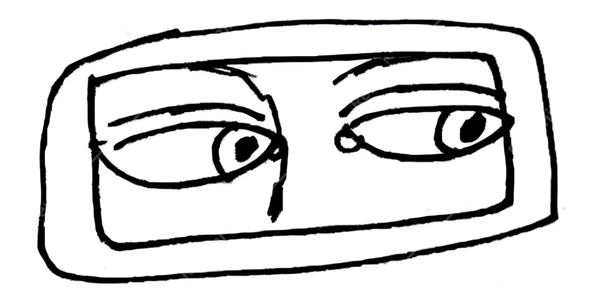Machines have the potential to make life easier and liberate us from the burden of toil. But in our world, they increasingly liberate work from its pesky dependence on humanity. We’ve become the burden. And it is simply too much to bear.
It’s a problem I first encountered on long car rides as a kid, when my dad would play old Ray Bradbury radio dramas. There’s a line from “Night Call, Collect” that I can still hear echoing whenever I think about technology: “Morning, Barton. This is Barton.”
“An anti-human logic lurks behind our system’s drive toward technological advancement.”
In the story, a man is stranded on Mars after its inhabitants are called back to Earth. His loneliness growing, he populates the planet with recordings of laughter, children singing, and even his own voice. He rigs up houses so he can hear doors swinging shut and catch the scent of eggs and bacon frying as he roams the vacant streets. Decades later, he receives a call from a rescue mission and flees, ecstatic to meet it. But he’s been tricked. It’s his younger self, embodied in long-forgotten audio recordings, returning to torment him. “As long as the tapes glide on … I’ll be young and cruel,” the voice taunts. The old man collapses, but the chatter carries on. Ring ring. “Hello, Barton, this is Barton.”
It’s the classic sci-fi tale of technology turning on its creator. But today, it also reads as a parable of humanity haunted by its own obsolescence. Futurists like Ray Kurzweil imagine a future “singularity” where humanity will merge with AI, transcending biological limits. For Kurzweil, this is the culmination of centuries of progress where cheaply or even freely produced things will mean the end or near end of disease, war, and even death. He’s right. But between our world and his lies a wasteland of crisis and human “uselessness” that must be surpassed.
In other words, we live in a time of immense possibility coupled with intensifying anti-humanism. The danger is that machines will continue to be used the way they have for centuries: to strip away the need for people, and even to leave the majority of us behind.
